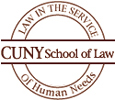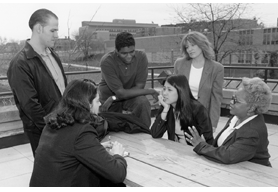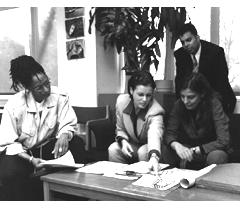
Prof. Randall Smith teaches theology, philosophy, and courses related to Modern Challenges to Christianity, at the University of Saint Thomas, Houston, Texas. He is a strong apologist for the Christian faith.
We invite you to support this ministry. Contributions in support of this Ministry are tax-deductible. Kindly send your support to
Bethany Fellowship International
6820 Auto Club Road, Suite A
Bloomington, MN 55438.
Please write Thirumalai's Ministry in the memo column.
BOOKS FOR YOU TO READ
AND DOWNLOAD
- THE LAW IS HOLY by Pastor Harold Brokke
- WORLD MISSIONS - A HISTORICAL PERSPECTIVE
by Tom Shetler - LIVE A VICTORIOUS LIFE IN THE SHADOW OF THE CROSS! : INTERCESSION, WARFARE, AND DELIVERANCE
by Pastor Ted Hegre. - MISSING PIECES: THE INCOMPLETE GOSPEL by LeRoy Dugan
- LUTHER'S PROTEST by M. S. Thirumalai
- TELL ME IT'S TRUE ...
A Book Of Poems by Stan Schmidt - SOMETHING IS GREATER THAN WONDERS...
A Book Of Poems & Free Verses by Pastor Harold Brokke - GEMS OF TRUTH by Stan Schmidt
- WHERE IN THE WORLD IS GOD? by Alec Brooks
- LIGHT OF THE WORLD, an Original Screenplay by W. G. Orr
BACK ISSUES
- NOVEMBER 2001
- DECEMBER 2001
- JANUARY 2002
- FEBRUARY 2002
- MARCH 2002
- APRIL 2002
- MAY 2002
- DECEMBER 2002
- JANUARY 2003
- FEBRUARY 2003
- MARCH 2003
- APRIL 2003
- MAY 2003
- JUNE 2003
- JULY 2003
- AUGUST 2003
SEND YOUR ARTICLES FOR PUBLICATION IN Christian Literature and Living.
- E-mail your articles and book-length reports to thirumalai@bethfel.org or send it by regular mail to:
M. S. Thirumalai, Ph.D.
6820 Auto Club Road #320
Bloomington, MN 55438 USA - Your articles and booklength reports should be written, preferably, following the MLA Stylesheet.
- The Editorial Board has the right to accept, reject, or suggest modifications to the articles submitted for publication, and to make suitable stylistic adjustments. High quality, academic integrity, ethics, and morals are expected from the authors and discussants.
Copyright © 2001
M. S. Thirumalai
The CUNY Law School Case
Modernism v. Postmodernism
Prof. Randall Smith
1. STRUGGLE TO UPHOLD VALUES OF MODERNITY IN POSTMODERN AGE
A recent case at CUNY Law School demonstrates the difficulty of trying to uphold the values of modernity in an essentially postmodern age.
For those who don't know, the members of the last graduating class of the CUNY Law School created a public outcry recently by nominating lawyer Lynne F. Stewart, 63, to be rewarded as "public interest lawyer of the year" at this year's graduation ceremonies. Ms. Stewart has, it seems, according to The New York Times, become a "cause célèbre among many left-leaning lawyers and advocates."
Choosing a cause célèbre of the left would be rather unsurprising and less than noteworthy for the traditionally liberal CUNY Law School except for one thing: the reason Ms. Stewart has become controversial is because she is the only American lawyer ever charged with providing material support to a convicted terrorist. According to Federal prosecutors, Ms. Stewart is guilty of distracting prison authorities so that her client, Omar Abdel Rahman, the blind Egyptian sheik who was convicted in 1995 for plotting to bomb the United Nations, could pass information to his followers on terrorist operations.
Given the current sensitivity toward terrorist activities, especially in the city most associated with the events of 9/11, the dean of the CUNY Law School felt that it would be more prudent to veto the students' selection.
2. FREE SPEECH DENIED IN LAW SCHOOL?!!
The reaction from students has been swift and predictable. "What message does this send to us?" commented student Kathryn Hudson, who spearheaded the drive to nominate Ms. Stewart. "If you can't have free speech at a law school, where can you have it?" Other students said they were planning to wear tape over their mouths at graduation to signify how their voices have been silenced and their rights of free speech violated.
The charges of "censorship" and violation of freedom of speech are nothing new and, in themselves, nothing remarkable, except for the fact that they seem incongruous somehow in this increasingly postmodern age.
3. INALIENABLE RIGHT TO FREEDOM OF SPEECH: CLEAR AND DISTINCT IDEAS
The notion of an inalienable "right" to "freedom of speech" is a concept of the modern era. It arose within the context of the Enlightenment's reverence for rationality, freedom, and autonomy.
Descartes, widely hailed as the father of modernity, set the stage by proclaiming his independence from all tradition and authority and his resolution to accept only "clear and distinct ideas" that he could demonstrate with certainty based upon his own powers of reason. With each person's reason being the sole measure of true and false, good and evil, it became necessary to ensure a suitable forum within which each rational agent might have a say in the governance of the commonwealth.
Indeed, in a government "by the People, of the People, and for the People," that retains its Powers based upon the just consent of the Governed, it was essential to the government that it ensure the free zone of discourse so that it could hear the voice of each, individual rational agent.
4. INDIVIDUAL IS SUBMERGED BY THE CONTROLLING FORCES OF LANGUAGE
Sounds good. The only problem is that, among contemporary postmodern intellectuals, the notion is entirely passé. According to postmodernists, the individual subject disappears into the social constructions of culture, especially the constraining and controlling forces of language. "Knowledge is power," proclaims the postmodernist, and language is one of the chief means by which people in power maintain their power over the "marginalized" in society. Instead of seeing "reason" as the privileged access to truth (as opposed to the myths and superstitions of primitive man), postmodernists affirm that language cannot capture truth.
5. LANGUAGE ONLY SAYS WHAT EACH INTERPRETER INTERPRETS IT TO MEAN
Indeed, language doesn't "say" anything at all - or more precisely, it only "says" what each interpreter interprets it to mean. On this view, there is no authentic, authoritative interpretation of a text; there are, rather, as many different "readings" of a text as there are different readers. Thus, when Edwin Meese, Ronald Reagan's attorney general, began speaking out about interpreting the Constitution according to the "original intent" of the framers, the postmodern crowd just laughed. The very idea! Recovering the original interpretation of a text: How gauche! How passé! How unlearned! Texts mean only what interpreters say they mean, and nothing more. So much for our Constitutional guarantee of freedom of speech: the words mean nothing or else they mean whatever the most powerful interpretive authority (like the Supreme Court) says they mean.
Not only have postmodernist theoriests questioned the power of language to signify anything other than an individual's will to power, they have become obsessed with the power of images in society. Indeed, noted postmodern theorist Jean Baudrillard is famous for proclaiming the "death of the real." What has taken its place is what Baudrillard calls "hyperreality": an order of representation and of images that are "more real than real." In our age, thinkers like Baudrillard would argue, the image, the model, and the simulation, rather then being mere copies of reality, have become reality itself for contemporary Americans who get their information largely from visual media such as television. It is, as other commentators have suggested, "the triumph of symbolism over substance" - only for the postmoderns, there isn't any substance behind the symbolism.
6. OVERWHELMING POWER OF THE SYMBOLS
The postmodern account of the overwhelming power of symbols and images explains why the CUNY Law School administration had to act as it did under the circumstances.
Why is the Dean of the Law School reticent to honor Ms. Stewart with its award at graduation? Not because she opposes the selection on its intrinsic merits. Indeed, in an e-mail message sent to all members of the graduating class, according to The New York Times, "Dean Glen wrote that she sympathized with the students' desire to defend unpopular causes and to honor the principle that defendants are presumed innocent." What's the problem, then? "Unfortunately," Dean Glen added, "Lynne Stewart has become a symbol laden with implications beyond these values." The problem isn't Ms. Stewart herself, you see; it is the image that this will project to New Yorkers still reeling from the devastation of the Twin Towers disaster.
The Times articles added:
Some CUNY law professors said the school could not afford the bad publicity that would follow if Ms. Stewart were to receive the award, especially at a time when the city and state are looking for ways to cut programs and save money.7. SYMBOLISM OVER SUBSTANCE, IMAGES OVER REALITY!
Symbolism over substance; images over reality! This is a sword that cuts both ways: in the end, the sacred cows of both the political left and right will end up being sacrificed.
How can the modern values of "independent rationality" and "freedom of speech" survive in a postmodern era where images are more important than ideals, arguments, or reality?
Indeed, one might sympathize with the plight of the students - poor, naive believers in the outmoded values of modernity in a cynical, media-savvy postmodern age - except for one thing: the students are, of course, playing the same game. While they are using the language of rational argument, due process, and "freedom of speech," let's be honest: they didn't choose Lynne Stewart for their graduation award this year because of her intrinsic merits or her service to the community. They chose Lynne Stewart this year because of her symbolic value. They wanted to send a message. The liked the image of someone who would thumb her nose at the U.S. government in its "war on terror." They wanted to tell the world: "We stand behind this lawyer and all lawyers who take controversial cases and do controversial things on behalf of their clients."
8. THE GAME OF MANIPULATING MEDIA
Given their own entry into the game of manipulating media images to serve their own political ends, the students should hardly complain when the administration counters with its efforts to control the media images surrounding the school. Faculty members and alumni were understandably concerned about the school's image. "I don't think this gesture would be interpreted very benignly out there," said professor Penelope Andrews (an understandable concern in an age when "interpretation" is everything). "It's just not something we can afford right now," commented a third-year law student. "This could have been a death knell for us."
So if what we have at CUNY is a postmodern battle of wills for control over images, why the allusion to the modernist, Enlightenment principle of "freedom of speech"? Well (this is where the story turns from comic to tragic), because this is all part of the "game."
The "rights" outlined in the Constitution, as any postmodern theorist will tell you (ad nauseum), are merely parts of a linguistic power-play by certain well-healed, dead white males to "marginalize" and "oppress" others at the bottom of society. These "texts" must be "deconstructed" in order that the original hierarchy established by the text may be subverted, until finally all interpretations give way to a non-hierarchical "free play" of meanings. So it's all a game, you see.
The students don't believe in these outmoded "texts" any more than the administration does; both are merely using the words and manipulating the images to exert their own political will to power. And while it makes for good theater, and lord knows, it provides further grist for the mill for postmodern theorists, in the end it also trivializes and endangers our real Constitutional protection of free speech.
C. S. Lewis used to say that, the English persistently laugh at courage and then are surprised to find cowards in their midst. So too, those persistently laugh at the Constitution and its enumeration of Enlightenment "rights" shouldn't be surprised to find postmodern tyrants in their midst. Those who play games with the language of the Constitution may wake up one day to find those "rights" no longer there, and the hyper-real "simulation" of rights no substitute for the real thing.
MARRIAGE AND THREE KINDS OF LOVE | CAN HINDUS BE CONVERTED? - REVISITING A NINETEENTH CENTURY CONTROVERSY IN THE TWENTY-FIRST CENTURY | FRAUD AND ECONOMIC DISHONESTY - A Curse on Our Society | THE CUNY LAW SCHOOL CASE - MODERNISM V. POSTMODERNISM | LOVE NOT THE WORLD | ABRAHAM - FATHER OF ALL WHO LIVE BY FAITH | PATCHES AND WINESKINS - LEARNING TO DEAL CONSTRUCTIVELY WITH CONFLICT AND CHANGE | SOME NEW BOOKS - BRIEF NOTICES | HOME PAGE | CONTACT EDITOR
Randall Smith, Ph.D.
Department of Theology
University of St. Thomas
Houston, Texas 77006 E-mail: rsmith@stthom.edu


